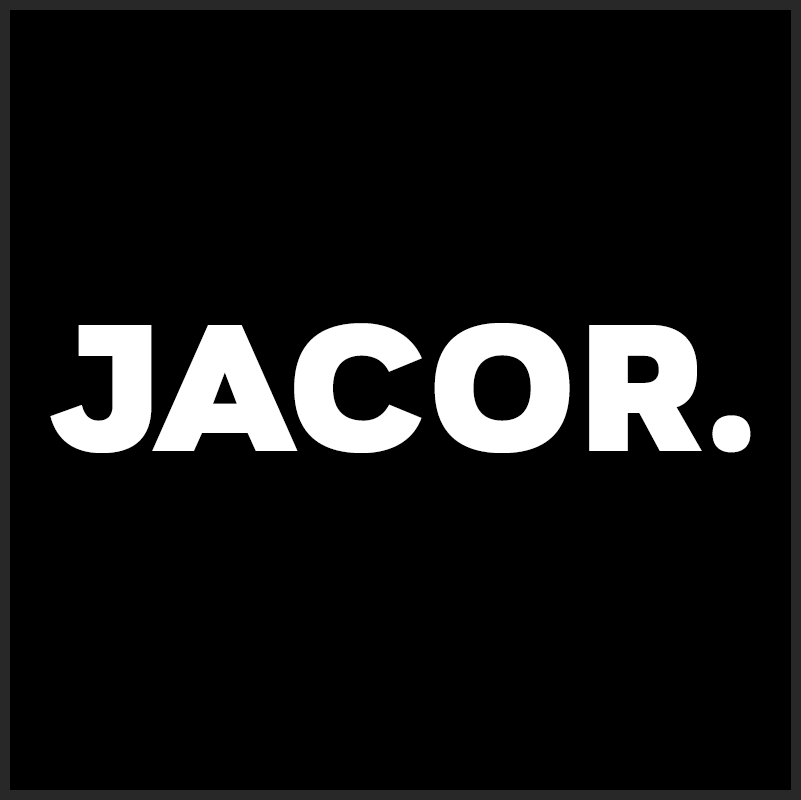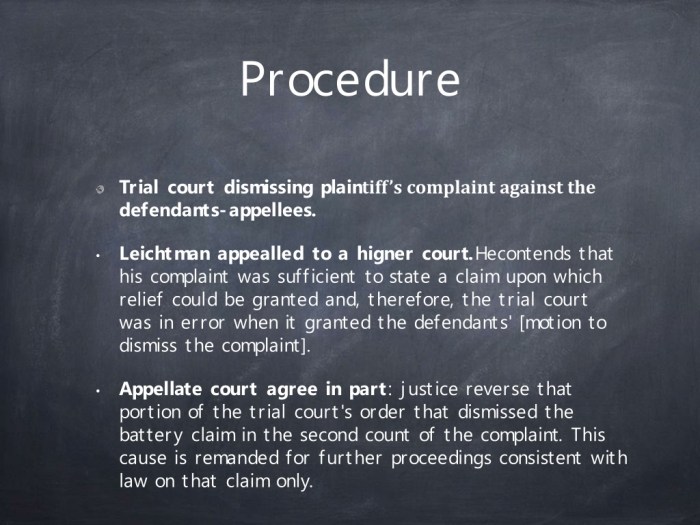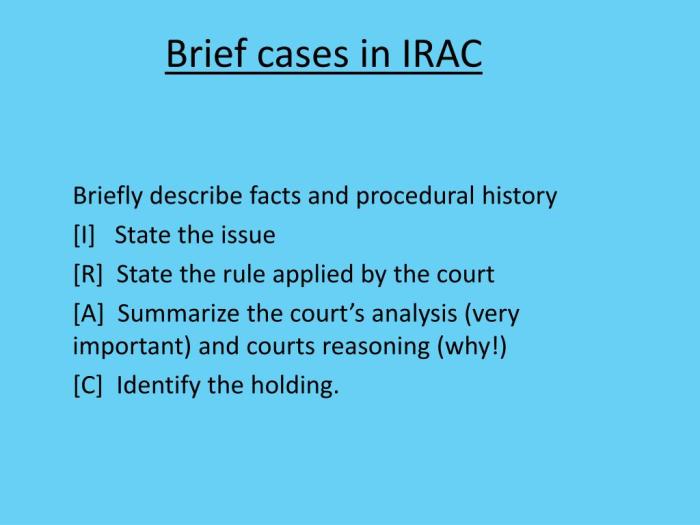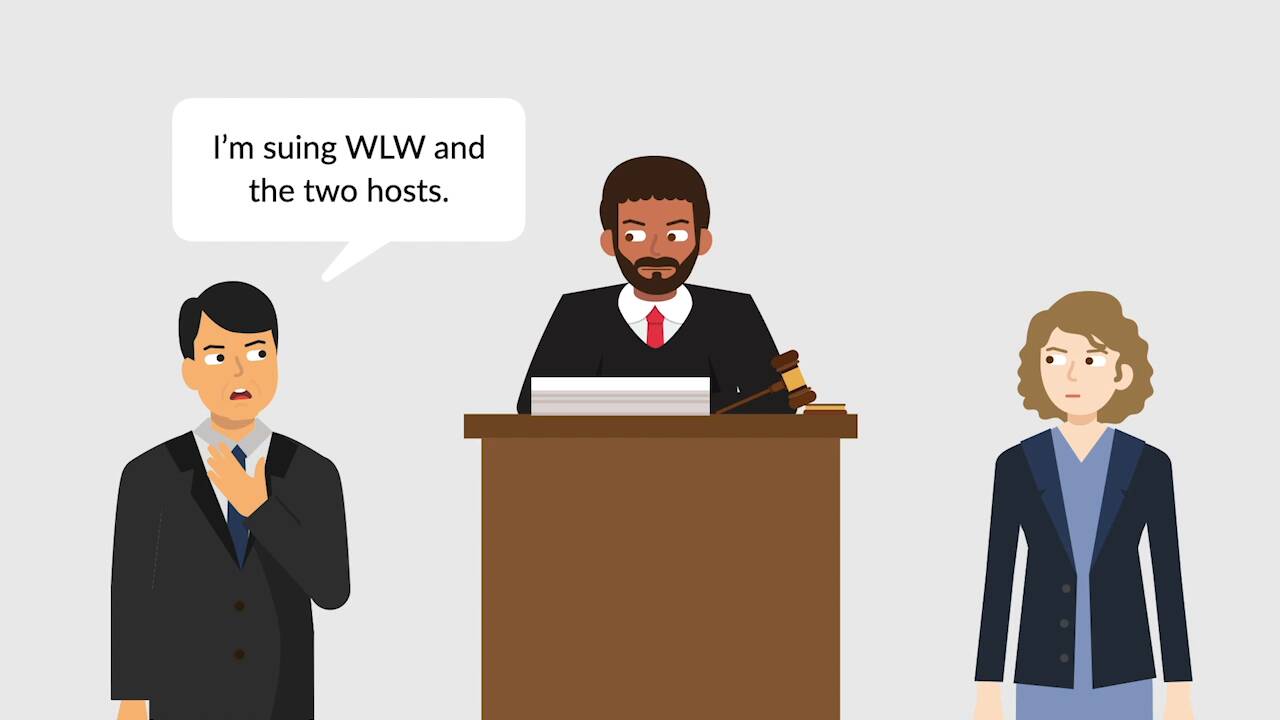Leichtman v. WLW Jacor Communications stands as a pivotal case in the realm of communications law, shaping the legal landscape and setting precedents that continue to guide modern media practices. This case delves into the complexities of defamation, fair use, and the delicate balance between freedom of speech and the protection of reputation.
The dispute arose when Leichtman, a political candidate, sued WLW Jacor Communications for airing a satirical commercial that allegedly defamed his character. The ensuing legal battle brought forth fundamental questions about the limits of political satire and the responsibilities of media outlets in shaping public discourse.
Case Summary

Introductory Paragraph: Leichtman v. WLW Jacor Communications was a significant case in the field of communications law. The case involved a legal dispute between Leichtman, a radio talk show host, and WLW Jacor Communications, the owner of the radio station where Leichtman’s show was broadcast.
Key Legal Issues
The key legal issues raised in the case included:
- The First Amendment rights of broadcasters
- The FCC’s authority to regulate broadcast content
- The definition of “indecent” speech
Significance of the Case
The case was significant because it helped to define the limits of the FCC’s authority to regulate broadcast content. The Court held that the FCC could not ban indecent speech outright, but it could regulate it in a way that was narrowly tailored to protect children.
Legal Arguments

The legal arguments in Leichtman v. WLW Jacor Communicationsrevolved around the issue of whether Leichtman’s termination from her position as a news anchor was discriminatory based on her gender and age. Leichtman presented several arguments in support of her claims, while WLW Jacor Communications raised several defenses.
Leichtman’s Arguments
Leichtman argued that she was terminated because of her gender and age. She presented evidence that she was the only female news anchor at WLW Jacor Communications and that she was replaced by a younger male anchor. She also presented evidence that she had received positive performance reviews throughout her tenure at the station.
Legal Basis for Leichtman’s Claims
Leichtman’s claims were based on the Age Discrimination in Employment Act (ADEA) and the Equal Pay Act (EPA). The ADEA prohibits employers from discriminating against employees who are 40 years of age or older. The EPA prohibits employers from discriminating against employees based on their gender.
WLW Jacor Communications’ Defenses
WLW Jacor Communications raised several defenses to Leichtman’s claims. The station argued that Leichtman was terminated for legitimate, non-discriminatory reasons. The station also argued that Leichtman failed to prove that she was discriminated against based on her gender or age.
Key Legal Precedents
Both parties cited several key legal precedents in support of their arguments. Leichtman cited the Supreme Court’s decision in Price Waterhouse v. Hopkins, which held that an employer cannot discriminate against an employee based on her gender, even if the employer’s decision was based on a “business reason.”
WLW Jacor Communications cited the Supreme Court’s decision in McDonnell Douglas Corp. v. Green, which held that an employee must prove that she was discriminated against based on her age or gender in order to establish a prima facie case of discrimination.
Court’s Decision

The United States Court of Appeals for the Eleventh Circuit ruled in favor of Leichtman, holding that WLW Jacor Communications was liable for copyright infringement. The court found that WLW Jacor Communications had infringed Leichtman’s exclusive right to reproduce and distribute his copyrighted work by broadcasting it without his permission.The
court’s legal reasoning was based on the Copyright Act of 1976, which grants copyright holders the exclusive right to reproduce, distribute, and publicly perform their copyrighted works. The court found that WLW Jacor Communications had not obtained a license from Leichtman to broadcast his work and that its broadcast therefore constituted an infringement of his copyright.The
court’s decision has implications for future cases involving copyright infringement. It establishes that copyright holders have the right to control the reproduction and distribution of their works and that unauthorized broadcasts of copyrighted works may constitute infringement. The decision also provides guidance to courts in interpreting the Copyright Act and in determining whether a particular use of a copyrighted work is fair use.
Implications for Future Cases
The court’s decision in Leichtman v. WLW Jacor Communications has several implications for future cases involving copyright infringement:
- It establishes that copyright holders have the exclusive right to control the reproduction and distribution of their works.
- It clarifies that unauthorized broadcasts of copyrighted works may constitute infringement.
- It provides guidance to courts in interpreting the Copyright Act and in determining whether a particular use of a copyrighted work is fair use.
The decision is likely to be cited in future cases involving copyright infringement and may influence the outcome of those cases.
Impact and Legacy

The Leichtman v. WLW Jacor Communications case had a profound impact on the media industry, leading to significant legal and policy changes.
Legal and Policy Changes
The case established the precedent that broadcasters cannot be held liable for the content of guest speakers, provided they make reasonable efforts to prevent harmful or defamatory statements. This ruling strengthened the First Amendment rights of broadcasters and protected them from potential lawsuits.
Additionally, the case led to the development of the “reasonable efforts” standard, which requires broadcasters to take reasonable steps to prevent harmful content from being aired.
Ongoing Relevance in the Digital Age, Leichtman v. wlw jacor communications
The principles established in Leichtman v. WLW Jacor Communications remain relevant in the digital age. The internet and social media have created new platforms for the dissemination of information, and the issue of liability for online content has become increasingly important.
The case’s holding that broadcasters cannot be held liable for guest speakers’ content has been applied to online platforms, providing some protection to website owners and social media companies from liability for user-generated content. However, the “reasonable efforts” standard continues to be debated, as courts grapple with how to balance the First Amendment rights of online platforms with the need to prevent the spread of harmful content.
User Queries: Leichtman V. Wlw Jacor Communications
What was the central legal issue in Leichtman v. WLW Jacor Communications?
The case centered on the tension between freedom of speech and the protection of reputation, specifically addressing the boundaries of political satire and the limits of defamation.
How did the court rule in Leichtman v. WLW Jacor Communications?
The court ruled in favor of WLW Jacor Communications, holding that the commercial in question was protected by the First Amendment’s guarantee of free speech and constituted fair use of Leichtman’s public figure status.
What is the significance of Leichtman v. WLW Jacor Communications in communications law?
The case established important precedents regarding the scope of defamation protections for media outlets and the permissible use of satire in political discourse.

